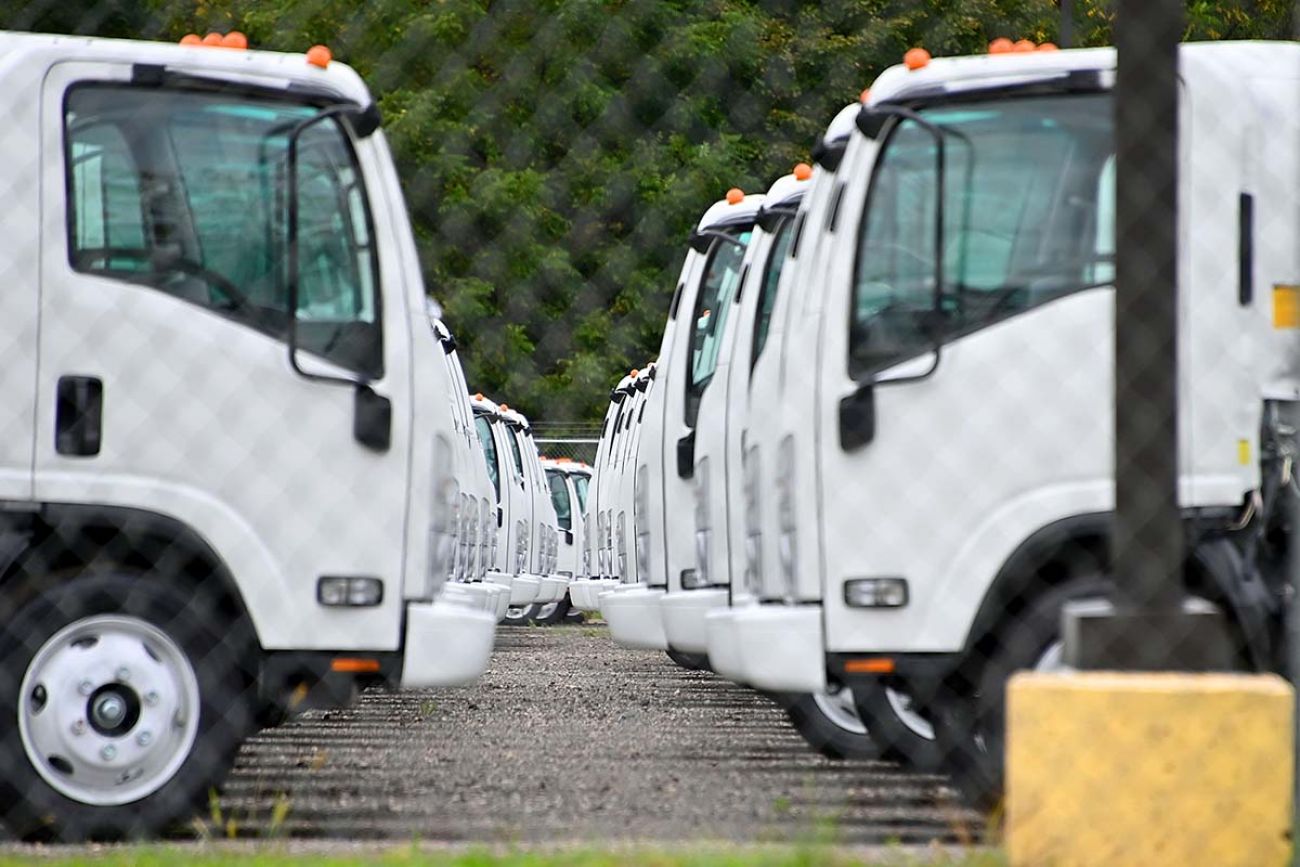Study shows Michigan's economy still struggles to compete with other states

Michigan remains in the bottom half of states when it comes to economic growth despite 12 years of gains since the Great Recession, according to a study released Thursday by a nonprofit statewide business advocacy group.
The next five years will be pivotal for Michigan as it tries to improve — and attract jobs, raise education levels and increase personal income, says the top executive of Business Leaders for Michigan.
“We've got a lot of headwinds facing us,” CEO Jeff Donofrio told Bridge Michigan.

Among the disruptions, he said, is the automotive industry’s accelerated shift to electric vehicles, which will affect at least 160,000 workers in Michigan. Among them are 46,000 who work directly on the internal combustion engines whose production manufacturers expect to cut by half by 2030.
- Related:
- ‘Labor shortages are not going away’ in Michigan. Is automation the answer?
- Michigan awaits ‘new era’ of economic development as $1B fund takes shape
Labor force participation also is a challenge. Michigan had 191,000 fewer people in the workforce of 4.758 million in November 2021 compared to two years earlier, according to the Bureau of Labor Statistics. About 59.5 percent of the adults in the state hold a job or are looking for one, compared to 61.9 percent nationwide.
In addition, Donofrio said, at least 100,000 residents are preparing to leave the workforce over the next 10 years due to retirement.
That, combined with pandemic declines in workers due to retirement, child care struggles and other COVID-related issues, should keep policymakers' attention on labor and workforce development, Donofrio said.
“If we can find ways to remove barriers to work, … (and) get to the average of where the U.S. is with labor force participation, we’d have another 250,000 workers in Michigan’s labor force,” he said. “That’s a significant jump.”
The annual benchmarking report by BLM put Michigan at 29th among the 50 states for economic growth, a ranking that Donofrio called “middle of the pack” after comparing it to its initial position of 49 in 2010.
The goal remains to get Michigan into the top 10.
“We’ve come a long way,” he said. But challenges remain.
“Our growth rate is not as high as it needs to be to really leapfrog other states,” Donofrio said.
This year’s annual study added four metrics. In addition to traditional business climate measures like GDP, or gross domestic product, BLM added labor force participation, net migration, the number of people in poverty and business creation. Combined, they show how Michigan residents are faring instead of solely measuring the state’s economy.
Ranked from highest to lowest, Michigan’s scores in the data comparison with other states show:
- Business climate perception, 15th
- Net talent migration, 19th
- Net business creation, 20th
- Poverty, 34th
- Median household income, 35th
- Educational attainment, 35th
- GDP per capita, 36th
- Labor force participation, 41st.
In the past three years, Michigan has improved in business climate perception, poverty —which changed largely due to federal pandemic stimulus payments — and educational attainment.
But the state lost ground over the same period in GDP per capita, median household income and labor force participation. Michigan’s ranks for talent migration and business creation over three years were flat.
According to this year’s BLM benchmarks, the top 10 states are Utah, Washington, Colorado, Texas, Massachusetts, Virginia, California, Oregon, Florida and Arizona.
“These are the states that give us a window of what Michigan needs to do,” Donofrio said.
Michigan is making strides in perception of its business climate, Donofrio said, in large part to the $1 billion SOAR fund approved by the Legislature in December.
That money will fund incentives for businesses considering expansion into the state, as well pay for site readiness efforts when property owners — either public or private — invest in infrastructure ahead of a contract by a company to build.
The fund also dovetails with one of BLM’s recommendations for the state: Investing in long-term economic development strategies.
In another recent survey, Michigan’s business climate tied for 12th in a ranking from Site Selection magazine. In that survey, workforce skills was named as the most important metric, which is in line with BLM’s second recommendation: that the state focus on developing talent, ranging from improving K-12 education to increasing growth in higher education degrees and credentials.
One program already underway is the MI-Reconnect program, which had 90,000 people ages 25-plus sign up for free community college. That's a start toward moving the state toward more knowledge-based jobs that pay higher wages and offer advancement than lower-skilled work.
“We actually have a large pool of individuals … who are in jobs that, frankly, are underpaying them,” Donofrio said. “(Some of our needs will be met) if we can move them along a career pathway.”
Business Watch
Covering the intersection of business and policy, and informing Michigan employers and workers on the long road back from coronavirus.
- About Business Watch
- Subscribe
- Share tips and questions with Bridge Business Editor Paula Gardner
Thanks to our Business Watch sponsors.
Support Bridge's nonprofit civic journalism. Donate today.
See what new members are saying about why they donated to Bridge Michigan:
- “In order for this information to be accurate and unbiased it must be underwritten by its readers, not by special interests.” - Larry S.
- “Not many other media sources report on the topics Bridge does.” - Susan B.
- “Your journalism is outstanding and rare these days.” - Mark S.
If you want to ensure the future of nonpartisan, nonprofit Michigan journalism, please become a member today. You, too, will be asked why you donated and maybe we'll feature your quote next time!




